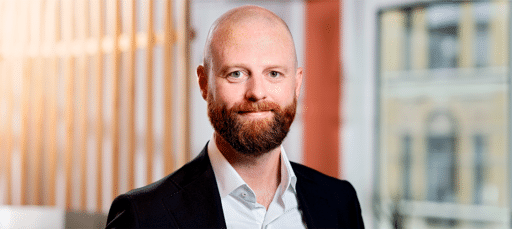Increasing polarization in society means that we as people and colleagues are moving away from each other. Polarization has far-reaching consequences for both society as a whole and our workplaces. In the coming years, our ability to manage relationships and get closer to each other will be crucial. To reach each other, we need to move into the emotional discomfort. And stay there.
In a gym, ten elderly people sit in a semi-circle. Some of them in wheelchairs, others sitting on chairs, all with beautiful wrinkles and a lot of life experience. Behind them are ten young people in a semicircle. Some of them with colored hair and piercings, others are less conspicuous.
A voice asks: "How many people here have handwritten a love letter to someone else in their life?" The question brings a smile. Almost all the older people raise their hands, as does one young person. The voice then asks: "How many people here write at least one handwritten letter a year?" Slightly fewer of the older people raise their hands - along with a few of the young people. Finally, the voice asks: "How many people here have never handwritten a letter to another person?" A single young person raises their hand.
The gym is from an art exhibition at the KINDL museum in Berlin. The exhibition is about technologies and human experience. The artwork reflects how we as humans have historically connected with each other. And how these forms of contact have changed radically in a short period of time.
Gender, culture and generational gaps
The evolution of technology has transformed the way we communicate and interact. Social media and advanced technologies have brought the world closer together, but at the same time created a digital world that isolates us from each other. This separation, this 'us versus them' narrative that emerges, creates gaps and a lack of understanding between people.
In the workplace, we see it clearly. Gaps between genders, generations and cultural groupings, where misunderstandings and lack of recognition create tension. These groups of people struggle to understand and listen to each other. To borrow a term from psychology, we have become worse at mentalizing, i.e. understanding other people. Not only from their external actions, but also from their internal needs, feelings and intentions. This has created a lack of conflict competence, where we avoid confrontation and difficult conversations - but instead withdraw from the relationship.
The trend has consequences. In Denmark, we face a huge challenge in the labor market to find the people and skills needed for essential, society-sustaining functions. This requires a broader understanding of competencies and a higher degree of inclusion. The Danish labor market is becoming more diverse these years. There are more female managers, and the employment rate for Danes of other ethnic origins or people with disabilities is increasing. We bring in workers from abroad for sectors where we cannot meet the demand ourselves. Our healthy elderly are staying in the labor market longer. And LGBTQI+ colleagues are less likely to hide their sexual orientation than before.
But alongside this progress, we must recognize that the strength of our labour market depends on the extent to which we are able to include, integrate and apply different experiences, perspectives, backgrounds and skills in the workplace community. Opening up dialogue and understanding - even on the difficult topics of discrimination and inequality in the workplace - is necessary to create an inclusive environment for the more diverse workforce we now have. And this leaves something to be desired.
Reconnect with each other
To create sufficiently inclusive workplaces - and societies more generally - one skill is essential to practice. It is the ability to tolerate a certain amount of discomfort. Even when that discomfort arises in relation to others.
Psychology tells us that humans have two basic needs: to be part of a group and to excel in that group. In evolutionary terms, these needs are important. They ensure that we adapt to the pack and that we have an important function in the pack. When we feel rejected, criticized or misunderstood by people who are different from us, these needs are threatened. This causes anxiety and discomfort and activates our threat system, so we react intuitively to protect ourselves. This feeling also occurs today in the workplace.
When we interact with colleagues we don't understand, we have to deal with this feeling of discomfort. But venturing into the unknown and creating change takes relational courage. It's a move towards greater emotional maturity, making yourself vulnerable, sharing concerns and doubts, but also coming forward with opinions, new ideas and distinctive points of view. Being mindful of our communication and how we approach each other with both empathy and clarity is crucial to creating a more inclusive and respectful work culture. We're probably not going back to writing love letters to each other by hand. But we need to reach out to our colleagues and fellow human beings in a figurative sense. This means addressing the discomfort that exists when we fundamentally don't understand each other.
You can start small by having lunch with new colleagues, making sure everyone's voice is heard at meetings, having coffee with the colleague you disagree with most often, and getting feedback from 'the others' on a project you 're working on. For bigger changes, you can get professional help to create a shared understanding and build the psychological safety needed in a modern and diverse workplace.
Looking for inspiration?
Then our wellbeing, culture and community services might be for you. It's all about creating a healthy, supportive and inclusive work environment where all members feel valued and motivated.




